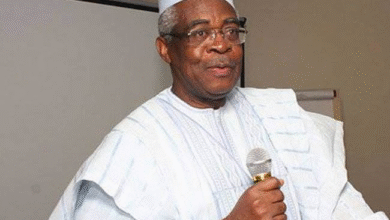Fidelity Bank’s Resilience: Strong Financials Amid Controversy

Fidelity Bank Nigeria was recently embroiled in a controversy surrounding a Supreme Court ruling on a dispute between the defunct FSB International Bank and Sagecom Concepts Limited, with many questioning the potential implications for the bank’s operations. However, some analysts have insisted there is no cause for alarm. According to them , despite this challenge, the bank’s financial performance remains robust, with its profit before tax soaring to N105.8 billion in Q1 2025, a 167.8% increase, and gross earnings rising by 64.2% year-on-year to N315.4 billion.
Fidelity Bank’s financial strength and market position have been underscored by its re-entry into the N1 trillion market capitalization club, with total deposits surging to N6.6 trillion. The bank’s commitment to supporting Small and Medium Enterprises (SMEs) plays a crucial role in job creation and economic development, further cementing its importance in the financial ecosystem.
It was further reported that Fidelity Bank’s acquisition of Union Bank UK in 2023 marked a significant step toward international expansion, strengthening its global footprint and enhancing its ability to serve a diverse clientele. With a strong commitment to regulatory compliance and risk management, the bank has maintained capital adequacy ratios above the required thresholds, demonstrating its ability to meet the N500 billion capitalization target set by the Central Bank of Nigeria (CBN).
Despite the controversy, Fidelity Bank’s financial resilience and strategic prowess position it for further growth and development. The bank’s commitment to innovation and customer satisfaction is expected to drive its continued success in the financial sector. As the bank looks to the future, its strong foundation and strategic expansion are likely to cement its position as a leader in the Nigerian economy.
Fidelity Bank has addressed the recent controversy surrounding a Supreme Court ruling, clarifying its stance on the matter. According to the bank, its actual liability is approximately ₦14 billion, which contradicts the court-awarded figure of nearly ₦225 billion. Despite this discrepancy, Fidelity Bank has expressed its commitment to complying with the Supreme Court’s decision while disputing the amount claimed.
The bank’s management appears focused on its financial performance, which has demonstrated remarkable growth. With a 210% surge in Profit Before Tax (PBT) for the 2024 financial year, Fidelity Bank’s strong financials underscore its resilience and stability. As the bank navigates this controversy, it remains committed to its operations and customers, ensuring minimal disruption to its services.
It’s worth noting that Peter Obi, a former chairman of Fidelity Bank, has also spoken out about the controversy, denying any wrongdoing and emphasizing that he doesn’t own the bank. As a former board member, Obi highlighted that Fidelity Bank has over 500,000 shareholders, and no single individual controls the institution. With this clarification, Fidelity Bank aims to provide transparency and reassurance to its customers, stakeholders, and the public.




